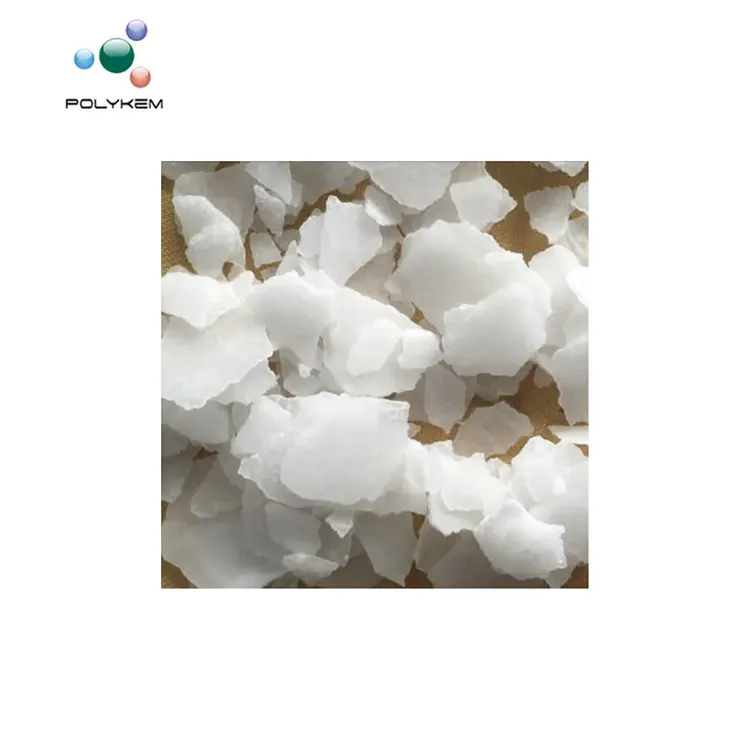Why Are Inorganic Chemicals Essential for Modern Industries?
2025-09-08
Inorganic chemicals are a diverse group of compounds that do not contain carbon-hydrogen bonds, yet play a fundamental role across multiple industries. From manufacturing and agriculture to water treatment and electronics, these chemicals are integral to industrial operations, enabling processes that shape modern infrastructure and technology.
Inorganic chemicals are primarily derived from mineral sources and include substances such as acids, bases, salts, metals, and oxides. Their properties—such as thermal stability, corrosion resistance, and high reactivity—make them suitable for applications where organic compounds may fail. For example, inorganic acids like hydrochloric acid and sulfuric acid are used in metal processing, cleaning, and pH regulation. Similarly, metal salts such as ferric chloride and calcium chloride are essential for water treatment, providing effective solutions for coagulation, disinfection, and scaling prevention.
Industries increasingly depend on the precise formulation and high purity of inorganic chemicals. High-quality compounds ensure process stability, product consistency, and regulatory compliance. For instance, the semiconductor industry requires ultra-pure inorganic chemicals like silicon dioxide and ammonium fluoride, where even minute impurities can compromise product integrity.
Key Applications of Inorganic Chemicals:
-
Water Treatment: Coagulation, flocculation, pH adjustment, and corrosion inhibition.
-
Metallurgy: Etching, plating, surface treatment, and metal extraction.
-
Pharmaceuticals: Precursors for drug synthesis and analytical reagents.
-
Agriculture: Fertilizers and soil conditioners, promoting nutrient absorption.
-
Electronics: Semiconductor manufacturing and printed circuit board fabrication.
-
Construction: Cement additives, coatings, and corrosion-resistant compounds.
The versatility and reliability of inorganic chemicals make them indispensable for industrial growth, innovation, and sustainability. Understanding their properties and applications helps manufacturers optimize production while minimizing environmental impact.
How Are Inorganic Chemicals Manufactured and Controlled for Quality?
The production of inorganic chemicals involves both natural extraction and chemical synthesis, requiring strict quality control to ensure purity and consistency. High-grade production demands adherence to industrial standards, ISO certifications, and environmental regulations. But how exactly are these chemicals manufactured, and what ensures their reliability in demanding industrial applications?
Manufacturing Processes:
-
Extraction from Natural Minerals:
Certain inorganic chemicals, such as sodium carbonate, potassium chloride, and gypsum, are obtained directly from mineral ores or seawater through crystallization, precipitation, and filtration processes. -
Chemical Synthesis:
Many inorganic compounds, including sulfuric acid, hydrochloric acid, and ammonia, are produced through chemical reactions involving controlled parameters such as temperature, pressure, and pH. For example, the contact process for sulfuric acid involves the catalytic oxidation of sulfur dioxide under strict conditions to achieve high purity levels. -
Purification and Standardization:
After synthesis, inorganic chemicals undergo purification through processes such as distillation, recrystallization, and ion exchange. This ensures removal of impurities that could compromise industrial processes. Analytical techniques like titration, spectroscopy, and chromatography are used for quality verification.
Quality Assurance Parameters:
| Chemical Type | Purity Range (%) | Typical Applications | Storage Conditions |
|---|---|---|---|
| Hydrochloric Acid | 30–38 | Metal cleaning, pH regulation | Cool, ventilated, sealed |
| Sulfuric Acid | 98–99 | Fertilizer, chemical synthesis | Acid-resistant containers |
| Sodium Carbonate | 99–100 | Glass production, water treatment | Dry, moisture-free |
| Calcium Chloride | 94–98 | De-icing, water treatment | Airtight, dry |
| Ferric Chloride | 40–45 | Wastewater treatment, etching | Sealed, dry storage |
Stringent quality control ensures that inorganic chemicals perform reliably under industrial conditions. Consistent specifications reduce process failures, improve efficiency, and meet safety and environmental compliance standards.
What Are the Safety and Environmental Considerations of Using Inorganic Chemicals?
While inorganic chemicals provide tremendous industrial benefits, they also require careful handling and adherence to safety protocols. Improper use can lead to chemical burns, environmental contamination, or equipment damage. So, what are the key safety and environmental considerations for inorganic chemical management?
Safety Measures:
-
Personal Protective Equipment (PPE): Gloves, goggles, and chemical-resistant clothing are essential when handling acids, bases, and reactive salts.
-
Storage Protocols: Chemicals should be stored in labeled containers, segregated by reactivity, and kept away from incompatible substances.
-
Spill Management: Containment kits, neutralizing agents, and emergency procedures must be in place to prevent accidental exposure or environmental release.
-
Training: Employees handling inorganic chemicals require training on material safety data sheets (MSDS), first aid procedures, and proper disposal methods.
Environmental Considerations:
Inorganic chemicals can impact ecosystems if released without treatment. Wastewater containing heavy metals, chlorides, or acids must be neutralized and treated before disposal. Water treatment facilities employ processes like precipitation, filtration, and neutralization to minimize environmental contamination. Sustainable practices in manufacturing and recycling reduce chemical waste and energy consumption.
Common Industry FAQs:
Q1: Can inorganic chemicals be safely used in household applications?
A1: Many inorganic chemicals, such as baking soda (sodium bicarbonate) or calcium carbonate, are safe in controlled household quantities. Strong acids, bases, or industrial-grade salts should not be used at home due to potential hazards.
Q2: How can manufacturers minimize environmental impact while using inorganic chemicals?
A2: Environmental impact can be minimized by implementing waste treatment systems, recycling chemicals, adopting green chemistry alternatives, and complying with environmental regulations to prevent harmful discharge into soil or water bodies.
By understanding the risks and implementing robust safety and environmental protocols, industries can leverage inorganic chemicals without compromising worker safety or environmental sustainability.
Choosing Reliable Suppliers and Optimizing Industrial Use
Selecting a trusted supplier for inorganic chemicals is crucial to ensure consistency, purity, and compliance with international standards. Reputable suppliers provide technical support, product specifications, and safe handling instructions, which are essential for industrial operations.
Optimizing Industrial Use:
-
Customized Formulations: Suppliers can provide chemicals tailored for specific processes, enhancing efficiency and reducing waste.
-
Technical Support: Guidance on storage, handling, and process integration ensures optimal performance.
-
Regulatory Compliance: Certified suppliers ensure products meet environmental and safety standards, mitigating legal and operational risks.
-
Bulk Supply and Logistics: Reliable delivery chains maintain production schedules and prevent shortages.
Polykem, a global leader in chemical manufacturing, offers a comprehensive range of high-quality inorganic chemicals designed to meet stringent industrial standards. Their products are manufactured under strict quality control, ensuring consistency, reliability, and environmental compliance. With expertise spanning multiple sectors, Polykem provides both standard and customized solutions to help industries enhance productivity, safety, and sustainability. For inquiries or to explore our extensive product range, contact us today to discuss how we can support your industrial needs.



